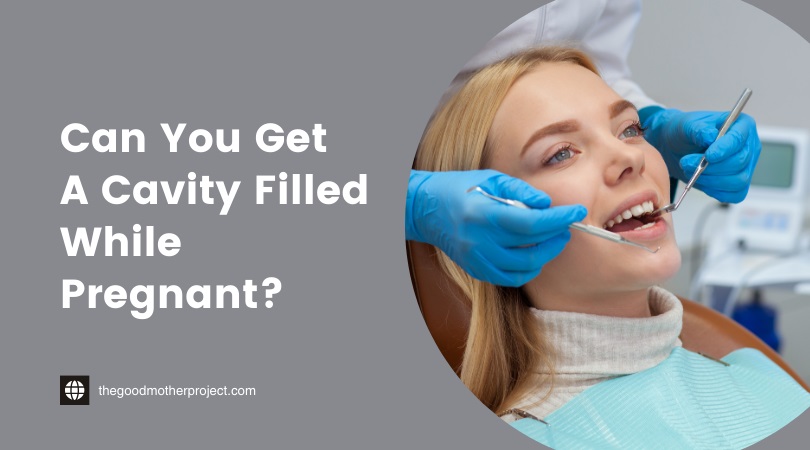Last Updated on January 6, 2025
Yes, you can get a cavity filled while pregnant. Dental treatments, including fillings, are generally safe during pregnancy, especially in the second trimester.
Pregnancy brings many changes, including heightened dental care needs. Hormonal fluctuations can increase the risk of gum disease and cavities. Maintaining oral health is crucial for both mother and baby. Many pregnant women worry about the safety of dental procedures.
It’s important to understand that dental care is essential during this time. Oral health directly impacts overall health, making regular check-ups and treatments necessary. Most dentists prefer to perform non-emergency treatments during the second trimester. Always consult your healthcare provider and dentist for personalized advice and treatment plans that ensure both your safety and your baby’s well-being.
Pregnancy And Dental Health
Pregnancy brings many changes to a woman’s body. These changes can affect oral health. Hormones fluctuate, and dental care becomes crucial. Understanding these changes helps expectant mothers take care of their teeth.
The Link Between Hormonal Changes And Oral Health
During pregnancy, hormonal changes can impact dental health. Increased levels of estrogen and progesterone can lead to issues. Here are some key points:
- Gum Sensitivity: Hormonal shifts can make gums tender.
- Pregnancy Gingivitis: This is a common condition. It causes swollen, bleeding gums.
- Increased Plaque Buildup: Hormones may allow plaque to accumulate faster.
These factors can increase the risk of cavities. Regular dental check-ups are essential during this period.
Common Dental Issues During Pregnancy
Pregnant women may face various dental issues. Here’s a list of common problems:
- Cavities: Increased acidity from pregnancy cravings can harm teeth.
- Tooth Sensitivity: Hormonal changes might heighten sensitivity.
- Enamel Erosion: Morning sickness can expose teeth to stomach acid.
- Oral Tumors: Pregnancy tumors are benign growths that can appear on gums.
Maintaining good oral hygiene is vital. Brush twice daily and floss regularly. Regular dental visits ensure prompt treatment of any issues.
Safety Of Dental Procedures In Pregnancy
Maintaining oral health during pregnancy is important. Many women worry about dental procedures. Cavity fillings can be safe, but knowledge is key. Understanding risks and precautions helps ensure safety for both mother and baby.
Cavity Fillings: Risks And Precautions
Cavity fillings during pregnancy involve some risks. Here are key considerations:
- Dental Anesthesia: Local anesthesia is usually safe. Always inform your dentist about your pregnancy.
- X-rays: Necessary only when absolutely needed. Protective lead aprons reduce radiation exposure.
- Medications: Some pain medications are unsafe. Discuss alternatives with your dentist.
- Timing: First trimester has the highest risk for certain procedures.
Precautions can help minimize risks:
- Always inform your dentist of your pregnancy.
- Schedule dental visits in the second trimester.
- Avoid elective procedures until after delivery.
Optimal Timing For Dental Work During Pregnancy
Timing is crucial for dental work. The best time for dental visits is during the second trimester. This period provides the safest environment for procedures.
| Trimester | Recommended Actions |
|---|---|
| First Trimester | Avoid non-emergency procedures. |
| Second Trimester | Ideal for dental work and check-ups. |
| Third Trimester | Postpone elective procedures; focus on comfort. |
Staying proactive about oral health is vital. Regular check-ups help catch issues early. Always prioritize safety for you and your baby.
Maintaining Oral Health During Pregnancy
Pregnancy brings many changes. Your body and needs evolve. Oral health is crucial during this time. Good dental care protects both you and your baby.
Daily Dental Care Tips
Follow these simple tips for great dental health:
- Brush Twice Daily: Use fluoride toothpaste.
- Floss Daily: Clean between your teeth.
- Stay Hydrated: Drink plenty of water.
- Eat Healthy: Choose fruits and vegetables.
- Limit Sugary Snacks: Reduce candy and soda.
Regular dental visits are important. Schedule check-ups every six months. Early detection prevents serious issues.
When To Seek Dental Consultation
Watch for these signs. They may need immediate attention:
- Pain: Toothaches can signal problems.
- Swelling: Gums that swell need care.
- Bleeding Gums: This may indicate gingivitis.
- Changes in Taste: Unusual tastes can signal issues.
Communicate with your dentist about your pregnancy. They can provide tailored advice. Your safety and health come first.
Frequently Asked Questions
Can Dental Procedures Harm My Pregnancy?
Dental procedures, including cavity fillings, are generally safe during pregnancy. They pose minimal risk to both mother and baby.
What Dental Work Is Safe During Pregnancy?
Most routine dental work, like cleanings and fillings, is considered safe. Emergency treatments may also be necessary.
Should I Delay Dental Treatment While Pregnant?
Delaying dental treatment can worsen dental issues. It’s best to address cavities promptly to avoid complications.
What Anesthesia Is Safe For Pregnant Women?
Local anesthesia is usually safe during pregnancy. Always inform your dentist about your pregnancy status beforehand.
Can Pregnancy Cause Dental Problems?
Pregnancy can lead to increased plaque, gum sensitivity, and other dental issues due to hormonal changes. Regular check-ups are crucial.
Conclusion
Pregnancy can raise many questions about dental care. Getting a cavity filled is generally safe during this time. Maintaining oral health is crucial for both you and your baby. Always consult your dentist to discuss any concerns. Prioritizing your dental visits can help ensure a healthy pregnancy and a beautiful smile.








